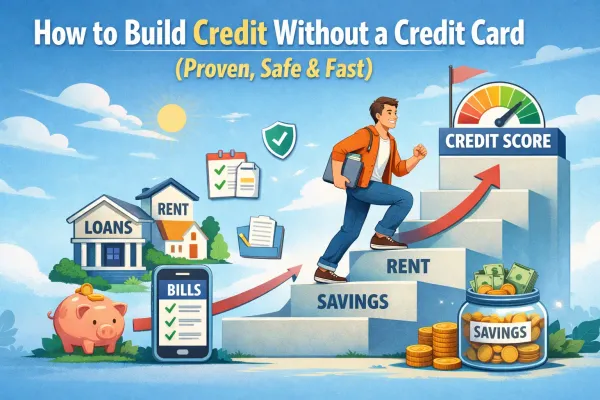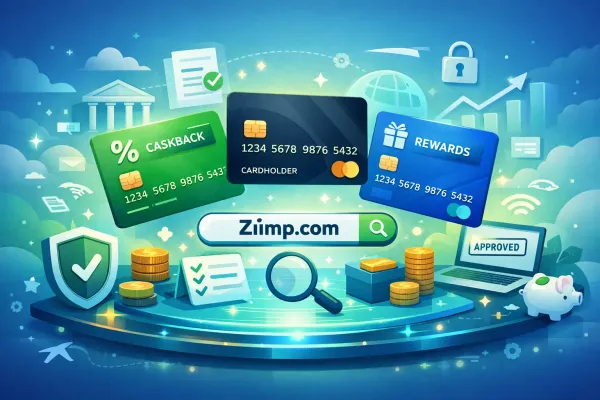Stretch Loan: Meaning, Pros and Cons, FAQs

A stretch loan is a type of financing that allows borrowers to extend the repayment period or borrow beyond their initial loan limit. This can help businesses and individuals facing temporary cash shortages or financial difficulties.
It’s commonly used in situations where immediate liquidity is required, and refinancing is not a viable option. However, while it provides financial relief, it may come with higher interest rates, longer repayment terms, and stricter borrowing conditions.
💡 How Does a Stretch Loan Work?

A stretch loan functions by allowing a borrower to extend an existing loan or borrow additional funds under revised terms. Here's how it typically works:
✔️ Application Process: The borrower requests additional funds from the lender.
✔️ Credit & Financial Assessment: The lender evaluates the borrower’s repayment ability.
✔️ New Loan Terms: Interest rates, repayment schedule, and conditions may change.
✔️ Loan Disbursement: If approved, the borrower receives the extended funds.
✔️ Repayment Phase: Borrower repays under the new terms, avoiding default.
Stretch loans are used for both personal and business needs, helping to prevent financial distress by extending credit when needed.
✅ Pros and ❌ Cons of Stretch Loans
Like any financial product, stretch loans have both advantages and disadvantages. Let's take a closer look at the pros and cons to help you make an informed decision.
✅ Pros of Stretch Loans
1️⃣ Offers Financial Flexibility
- Helps manage unexpected expenses or financial crises.
- Useful for businesses facing cash flow shortages.
2️⃣ Prevents Loan Default
- Extending a loan can prevent credit score damage.
- Provides an alternative to bankruptcy or foreclosure.
3️⃣ Quick Approval Process
- Faster than traditional refinancing options.
- Suitable for emergency financial needs.
4️⃣ Can Improve Credit History
- If paid back on time, it demonstrates financial responsibility.
- May help build trust with lenders for future loans.
❌ Cons of Stretch Loans
1️⃣ Higher Interest Rates
- Lenders charge extra interest due to the increased risk.
- Total repayment amount can be significantly higher.
2️⃣ Extended Debt Period
- Longer repayment terms lead to prolonged financial obligations.
- Borrowers may struggle with continuous loan payments.
3️⃣ More Stricter Terms
- Additional collateral or security may be required.
- Lenders may ask for detailed financial disclosures.
4️⃣ Risk of Overborrowing
- Easy access to extra funds can lead to uncontrolled debt.
- Borrowers may struggle with repayment due to loan stacking.
🔎 Types of Stretch Loans
🏢 Business Stretch Loans
- Used by companies to cover payroll, inventory, or operational costs.
- Helps businesses during economic downturns or revenue fluctuations.
👨💼 Personal Stretch Loans
- Borrowed for medical emergencies, tuition fees, or home repairs.
- Individuals use them to avoid delayed payments or defaults.
🏡 Mortgage Stretch Loans
- Helps homeowners modify loan terms instead of foreclosure.
- Extends mortgage repayment to make installments more manageable.
💳 Credit Card Stretch Loans
- Some financial institutions allow customers to extend their credit limits.
- Helps avoid penalty fees and maintain a good credit score.
📊 Stretch Loan vs. Refinancing: Key Differences
| Feature | Stretch Loan | Refinancing |
|---|---|---|
| Purpose | Extends existing loan or adds additional funds | Replaces old loan with a new one |
| Interest Rate | Higher due to increased risk | Lower if credit score is good |
| Approval Speed | Faster | Takes longer due to new processing requirements |
| Credit Impact | Can be negative if not managed well | Can improve credit score with better terms |
| Best For | Short-term financial shortfalls | Long-term loan restructuring |
👉 When to Choose a Stretch Loan?
- You need quick financial relief to avoid default.
- You can't qualify for refinancing but need extended credit.
👉 When to Choose Refinancing?
- You want lower interest rates and long-term repayment benefits.
- Your credit score allows for better loan terms.
🛠️ How to Qualify for a Stretch Loan?

📌 1. Good Credit Score
✔️ A high credit score improves approval chances.
✔️ Low-credit borrowers may still qualify but at higher rates.
📌 2. Stable Income
✔️ Lenders check employment status and monthly earnings.
✔️ Self-employed applicants may need to provide additional documentation.
📌 3. Existing Loan Status
✔️ Borrowers with on-time payments have a higher approval chance.
✔️ Late payments may result in loan denial or higher interest rates.
📌 4. Collateral Requirement
✔️ Some lenders require collateral for high-risk borrowers.
✔️ Assets like real estate or business equipment can be used.
🔍 Things to Consider Before Taking a Stretch Loan
✔️ Compare Interest Rates – Check rates from different lenders.
✔️ Assess Repayment Plans – Have a clear plan to repay the loan.
✔️ Use Only for Necessities – Avoid unnecessary borrowing.
✔️ Research Lender Reputation – Prevent scams or predatory lenders.
✔️ Explore Alternatives – Consider savings or low-interest credit lines first.
❓ FAQs About Stretch Loans
📌 What is the main purpose of a stretch loan?
A stretch loan helps borrowers extend their repayment period or borrow extra funds to manage financial shortfalls.
📌 Does a stretch loan impact my credit score?
Yes, it can affect credit positively if paid on time or negatively if missed payments occur.
📌 Are stretch loans better than payday loans?
Yes, stretch loans generally have lower interest rates and structured repayment plans, making them more manageable than payday loans.
📌 Can businesses use stretch loans?
Absolutely! Many businesses use stretch loans for short-term financial stability and to maintain operations during tough times.
📌 Do I need collateral for a stretch loan?
Not always, but high-risk borrowers may be required to provide collateral such as property or business assets.
📌 How fast can I get a stretch loan?
Approval depends on the lender, but it’s typically quicker than traditional refinancing, often within a few days.
🔚 Final Thoughts: Is a Stretch Loan Right for You?
A stretch loan can be a financial lifesaver when managed responsibly. It provides quick access to funds, prevents loan defaults, and offers financial flexibility. However, high-interest rates, extended debt periods, and stricter lending terms require careful consideration before applying.
If you’re facing a temporary financial crisis, a stretch loan may be a great solution. But always compare lenders, read the terms carefully, and ensure you have a solid repayment plan to avoid long-term financial issues.




